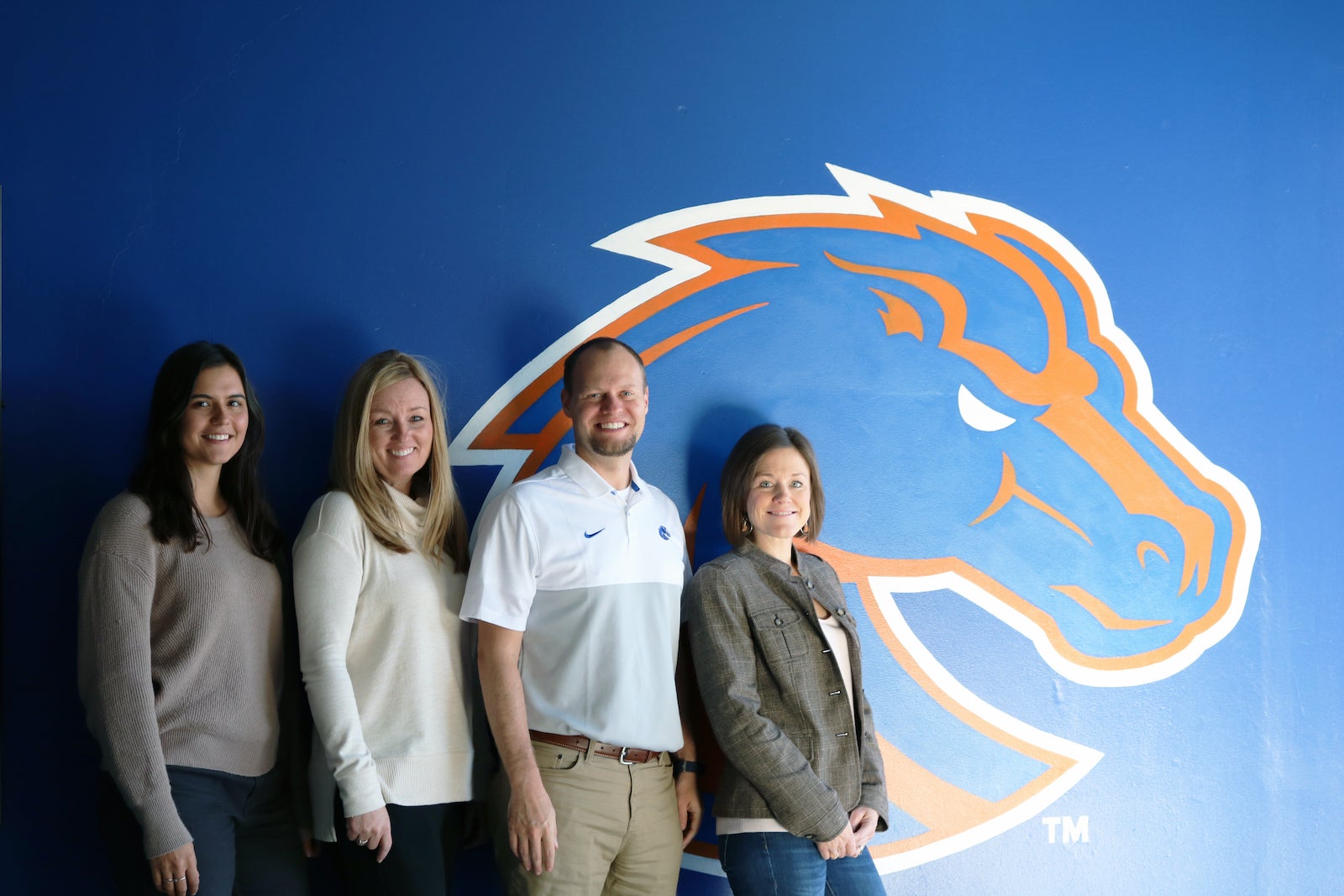
Through a grant provided by the NCAA, Boise State University professors Eric Martin and Kelly Rossetto along with Illinois State University professor Scott Pierce are creating a program to ease the transition for incoming freshman student-athletes. The universities developed in-person and online workshops that focus on four key areas that build a greater level of resiliency among student-athletes: a healthy identity, stress management and coping skills, social networks, and a leadership mindset.
According to their latest study on the many challenges that first-year student-athletes face, Boise State and Illinois State found that these students encounter increased course rigor, less time in the classroom as compared to non-athlete students, and extensive time commitments while simultaneously combating public scrutiny and frequent adversity. The workshops aim to improve their physical and mental well-being, as well as provide a framework that the NCAA can use on a broader level.
“The transition to college can sometimes be overwhelming to students, and the program aims to help them develop the resources needed to demonstrate resilience when stressors arise,” said Martin. “During the program, students reflect on their own values and experiences that could aid them in the future, examine what types of social support they have in their lives, learn new coping skills, and begin to think about how they can demonstrate leadership abilities over the course of their time at Boise State. We hope these workshops will help students develop these skills in a controlled environment so when stress does arise, they have a toolbox of resources they can draw from to handle problems.”
BroncoLife, a program that is committed to supporting the development of student-athletes, offers a one-credit program that aids this transition from high school to college. The four new workshops are an add-on to the existing freshman seminar.
The universities will measure and evaluate the effectiveness of the workshops three times throughout the program by using quantitative and qualitative methods. They also will interview 10 student-athletes at each university who completed the program to determine their skills gained, perceptions of each of the workshops, and overall enjoyment of the program.
Martin believes this program has the power to also improve the lives of non-athletes who balance their college careers with jobs, families and other responsibilities that create significant challenges of their own.
“By assessing various markers of well-being throughout the program, we hope to learn how these workshops can impact student well-being and look to scale the program to the general student population,” he said.